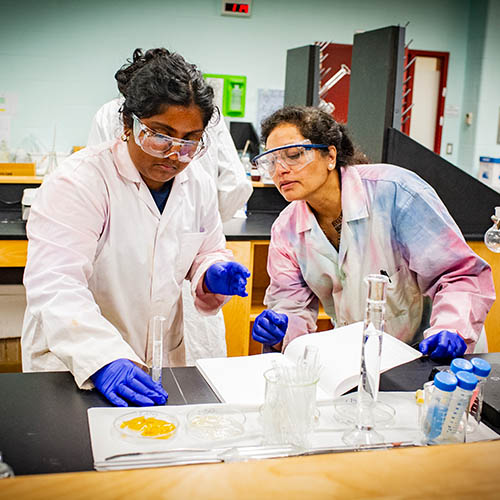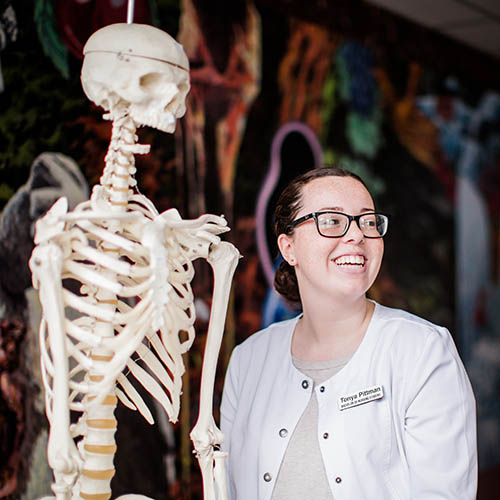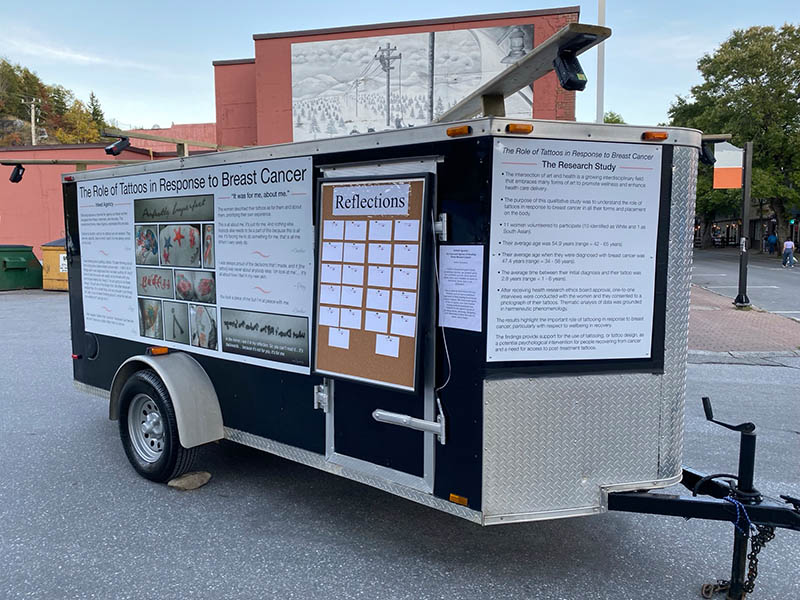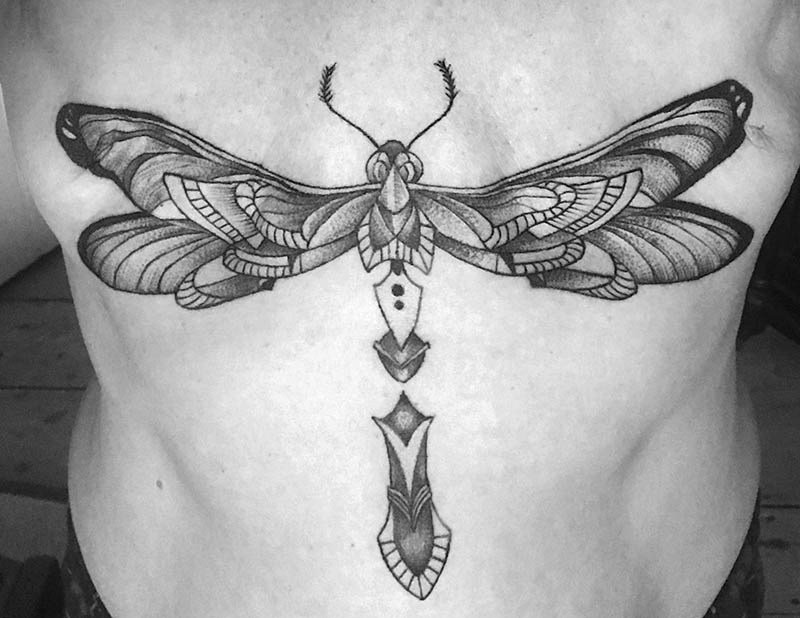Research Report: 2023
▼ Choose a report:

Powered by Research & Graduate Studies

Powered by Arts and Social Science

Powered by Science and the Environment


The researchers took their work to Corner Brook's CB Nuit
The prevalence of tattoos has increased exponentially in recent years. With that increase has come a greater appreciation and understanding of the role tattoos may play for those who choose them, such as self-expression, memorialization, commemoration, and social connection. While the motivations for obtaining a tattoo are becoming increasingly well-established, there is much less known about the role of tattooing in response to health conditions, particularly in response to breast cancer.
Given the limited research in this area, Drs. Sonya Corbin Dwyer and Jennifer Buckle conducted a qualitative study to explore the role of tattoos in response to breast cancer, in all their forms and placement on the body. Eleven women participated in this study, ranging in age from 42 to 65 years old. The findings highlight the important role of tattooing in response to breast cancer, particularly with respect to wellbeing in recovery.

Tattooing provided the participants a sense of agency in their healing after breast cancer and offered meaningful health information about how they processed their diagnosis, treatment, and recovery.
The results provide support for the use of tattooing, or tattoo design, as a potential psychological intervention for people recovering from cancer. In addition to a manuscript being submitted for publication, the results were presented at the annual conference of the Canadian Association of Psychosocial Oncology in June, then through an art exhibit at CB Nuit Art at Night Festival and at the CIBC Run for the Cure in St. John's. To find out more, and hear Dr. Corbin Dwyer speak on the research, check out the interview on The Plain Truth with host Paula Sheppard on Bay FM.